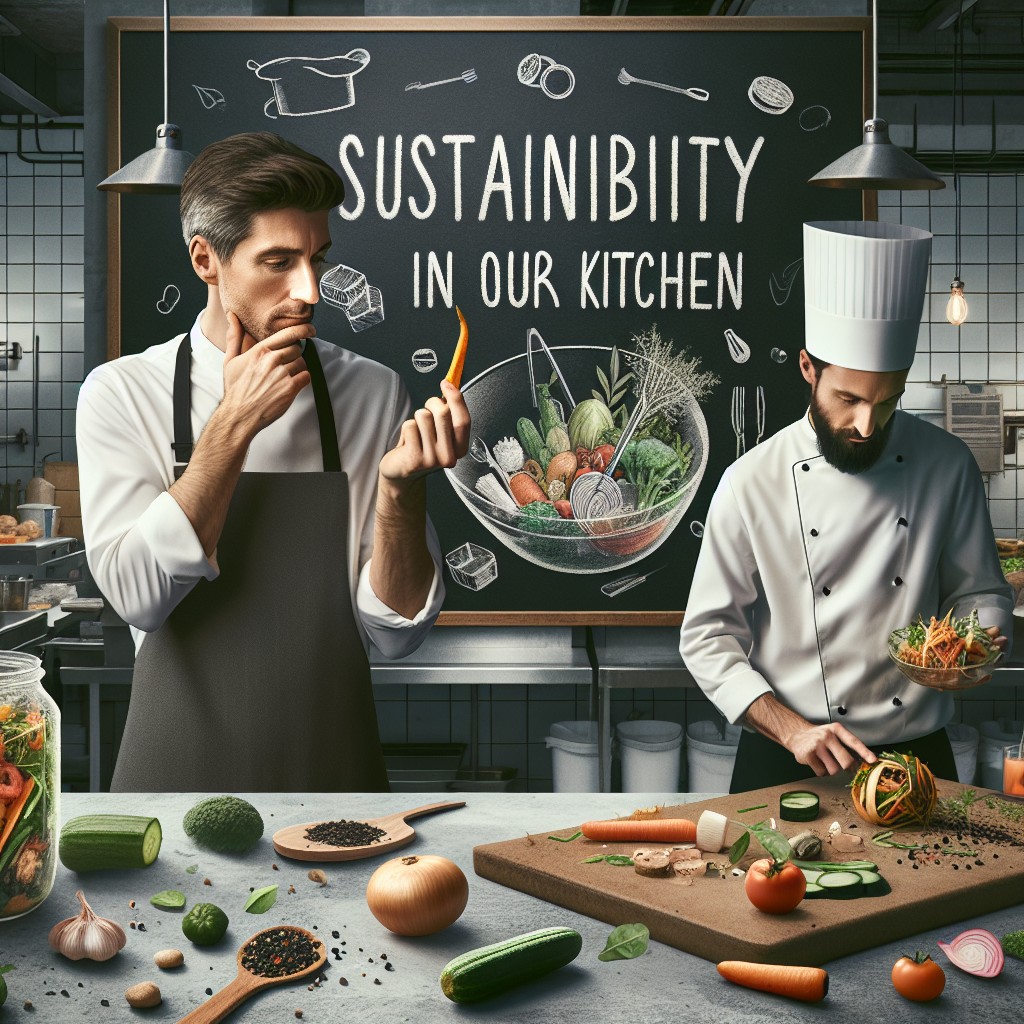According to recent studies and reports, the world's population is projected to reach a staggering 9.7 billion people by the year 2050. With an increasing number of mouths to feed, it is crucial that we find sustainable ways to produce and consume food. One of the most significant challenges in the food industry is the amount of food waste generated every day. However, in recent years, restaurants have been taking a proactive approach to combat food waste by embracing sustainability and cooking with food scraps.
Restaurants have traditionally been one of the largest culprits when it comes to food waste. Whether it is leftover ingredients, spoiled produce, or uneaten meals, the amount of food that ends up in the trash is alarming. However, many establishments are now recognizing the impact of their actions and have started taking steps to reduce their waste and carbon footprint.
One of the innovative ways that restaurants are embracing sustainability is by incorporating food scraps into their menus. Instead of discarding perfectly edible parts of ingredients, chefs are using scraps in creative ways to create delicious dishes. For example, carrot tops can be turned into pesto, broccoli stems can be pickled, and citrus peels can be candied. These practices not only help reduce food waste but also add unique flavors and textures to the menu, enhancing the dining experience for customers.
Another way restaurants are contributing to sustainability is by implementing the "nose-to-tail" and "root-to-stem" philosophies. These approaches involve using the entirety of an animal or plant, respectively, in order to minimize waste. Chefs have been creating innovative dishes using lesser-known cuts of meat, such as pork belly or beef cheeks, which were previously considered undesirable. Additionally, they are using all parts of vegetables, from the stems to the leaves, to maximize the use of the entire plant and reduce waste.
In addition to incorporating food scraps into their menus, many restaurants have adopted composting practices to deal with the unavoidable food waste. Instead of sending leftovers to landfills, establishments are composting their organic waste, which can then be used as nutrient-rich soil for gardens and farms. This not only diverts waste from landfills but also reduces the need for synthetic fertilizers, which can have detrimental effects on the environment.
Furthermore, restaurant owners are finding creative ways to educate their staff and customers about the importance of sustainability. Many establishments now have training programs for their employees to raise awareness about food waste and teach them how to minimize it. Additionally, restaurants are starting to label their menu items to highlight the sustainable practices they are implementing, allowing customers to make informed choices and support establishments that prioritize sustainability.
The adoption of sustainable practices in restaurants is not only beneficial for the environment but also for business. Consumers are becoming more conscious of their impact on the planet and are looking for restaurants that align with their values. By embracing sustainability and cooking with food scraps, restaurants can attract and retain environmentally conscious customers, leading to increased revenue and brand loyalty.
Moreover, by reducing food waste and incorporating scraps into their menu, restaurants can also save money. Food waste is a significant expense for many establishments, and by utilizing ingredients fully, they can reduce costs and improve their bottom line. This creates a win-win situation where both the environment and the restaurant benefit.
In conclusion, restaurants across the globe are taking a proactive stance in embracing sustainability by cooking with food scraps. By incorporating scraps into their menus, implementing the "nose-to-tail" and "root-to-stem" philosophies, composting organic waste, and educating staff and customers, they are making significant strides in reducing food waste and minimizing their carbon footprint. Not only does this benefit the environment, but it also attracts environmentally conscious customers and improves the financial health of the restaurant industry. It is clear that restaurants play a crucial role in the food waste dilemma, and through their dedication to sustainability, they are leading the way towards a more sustainable future for all.

Published on February 27, 2023
Restaurants Embrace Sustainability by Cooking With Food Scraps
Share This Article
More Articles You Might Like
Discover More Content
Explore our collection of articles across various topics and categories. From cutting-edge technology insights to wellness wisdom, we curate the best stories to expand your horizons.
Article ID: 170